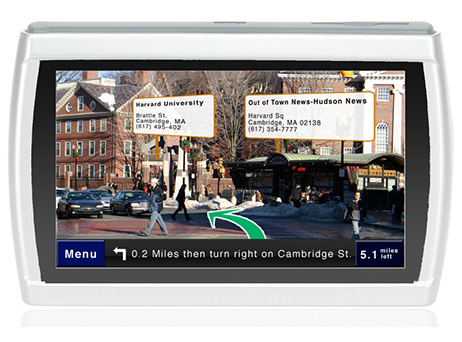My colleague Anand Rao and I think that augmented reality is going to be a big deal for businesses. What is it? It is the idea that locations, devices, even the human body will be "augmented" by linking and overlaying additional information on top of "regular" reality. Milgram's reality continuum below is useful.

For example, this month's Esquire will have visual codes embedded in the text - even on the cover - which you can hold up to your computer's camera. The computer will read the codes, and take you to a video or other information linked to that magazine "location". As reported in the Wall Street Journal, it is a bit gimmicky - but is it really? After all, the physical magazine is a great way to create a link to more comprehensive content. The magazine cannot afford to put too much information between its covers, but it can put as many pointers as it wants to more content. This basic notion is very, very powerful. (See the great post on this topic by Gary Hayes which inspired our thinking.)
Anand and I think it will change at least the following five thing:
- The nature of advertising. The beauty of augmented reality is that it allows any advertiser to bring the possibility to purchase much closer to the advertising stimulus. So, if I'm reading an interesting article in a magazine and there is an add with a visual code on it, I can then scan it with my BlackBerry or my iPhone and order it immediately. We know that if you are an advertiser you want to allow people to transact while they are interested in your product or service.
- The nature of location. The GPS revolution in cars has already created a low fidelity version of augmented reality - by enabling maps in any car that wants them. You are already starting to see applications available on advanced phone that allow an individual to hold their phone up to a location, and the information about the location is overlayed. Right now these are focused on tourism, but it does not take a lot of imagination to see that any sales or service force would love to be able to walk up to a building and understand the nature of the potential customers inside, or installed products to be serviced.

- The nature of healthcare. One of the great problems of healthcare is the lack of information at the point of service. It is only a matter of time before you will have the option to link your medical information to you. There is cheap, available bio recognition technology which will allow someone to swipe their finger, or speak into their phone to identify themselves, and then to allow the doctor to have information available to them - just like Esquire allowed for the ads to be tagged to a page
- The nature of relationships. The next natural extension of Salesforce.com would be to have a person be able to either scan in a face (face recognition software is standard issue with many new photo products, including Apple's iPhoto, '09, and then provide the salesperson with the best available background search on the individual whose information may be out on Facebook, LinkedIn, etc. Also, if you are like my friend and Diamond Fellow Gordon Bell, who has taken his whole life digital (documented in his book Total Recall, which just came out), you can link any face to all you know about that person.
- The nature of knowledge. Much knowledge about devices, setting, and other work is not available because we have a hard time getting access to it at the right time. BMW did a concept piece on augmented reality where a mechanic is replacing a fan while wearing special glasses which project the instructions onto the car as he looks at the engine compartment. Our understanding is that this is not operational, but something like it will come.
Why are we so bullish? The military has been augmenting the battle field for some time, and now with advanced GPS devices, better telecommunications and hand held devices that have enough display and computing power to make things interesting, we think we are at the beginning of a boom market in augmented reality. So the question becomes, is your firm thinking about how their advertising, selling, products and service will change when you can overlay the right information, at the right time and in the right form - everywhere?
What do you think? Are we at the beginning of a revolution or is augmented reality an idea that will always be in the near future, but never here?